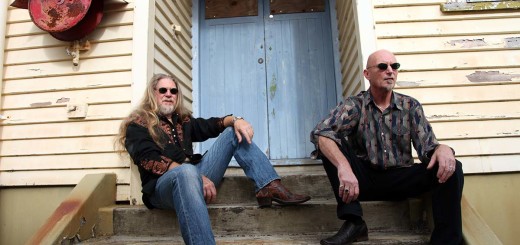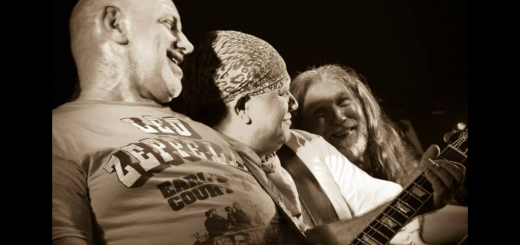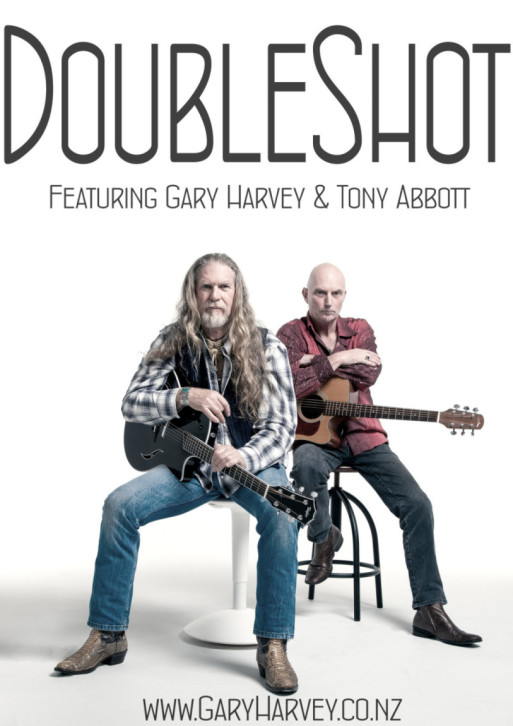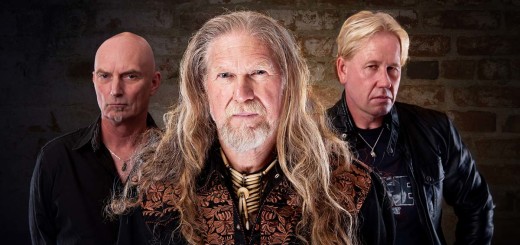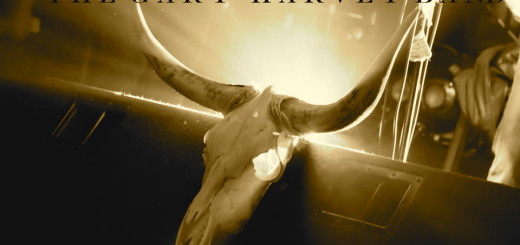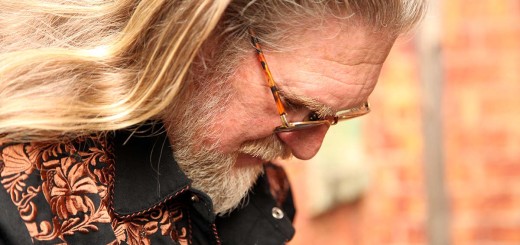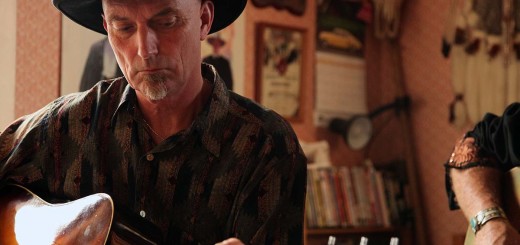Going The Distance
Some while ago a television researcher called me wanting some advice: they were looking for a long-serving musician who was just out there doing it for little reward other then the love of the music. I recommended singer-bassist Gary Harvey. I’m told the guy didn’t ever get in touch with him but that was their loss. Gary fits their description perfectly.
Gary had sent me a copy of his last album with his band the Night Owls, For What It’s Worth, and inside he had scribbled “from the old blues rocker, G. Harvey”.
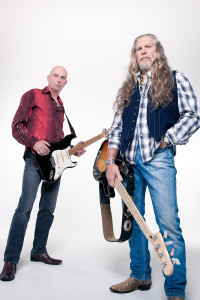 Well, still rocking but not that old because what keeps him young is that he’s still just loving making music. I’m always a little sceptical when young musicians tell me they are only in it for the music. I’ve seen too many go off and become teachers and such when things don’t work out within the time-frame of fame they’ve given themselves. But Gary?
Well, still rocking but not that old because what keeps him young is that he’s still just loving making music. I’m always a little sceptical when young musicians tell me they are only in it for the music. I’ve seen too many go off and become teachers and such when things don’t work out within the time-frame of fame they’ve given themselves. But Gary?
Well he’s in his late 50s and still doing what he has always done. He’s worked a day job and made the music he loves, year in year out. And he has a great sense of humour about it. He genuinely laughs off the hardships. I like that.
Gary also make the kind of music that never goes out of style – it’s hard edged Texas blues – but is rarely in style. It’s the kind of music people love to hear in bars and which radio programmers, television people and music magazine editors don’t have a clue about. They don’t go to bars in my experience. Me? Well, to my shame I do.
So Gary and the Night Owls just keep on making it for people like me. I like that about him too.
And despite the lack of media coverage Gary has just kept on doing it, and he has come a long way from playing r’n’b in clubs around Auckland in the mid 60s alongside the great names from those days like The Pleazers, The Underdogs and the La De Das.
One of his first bands included Lou Rawnsley and Tony Walton (both later in The Underdogs) but in the late 60s he relocated to London, played in various bands and was offered the bass slot in Free, then at the top of their game with lead singer Paul Rodgers and singer Paul Kossoff challenging all-comers in hard rocking r’n’b.
But the band was unstable and for “contractual reasons” Gary wasn’t a permanent member. He was offered a seat in Supertramp but was wise enough not to take it. He has my admiration and respect for that, I always thought they were bloody awful.
Gary continued gigging around London, declined the bass job in Stealers Wheel just as they were about to break big with their Dylanesque folk rock. Gary was a rocker with a heart full of blues and musical differences were inevitable.
He hung out with the Pretty Things and Led Zeppelin through mutual friends and in the early-70s moved back and forth between London and Auckland, creating bands as he went.
Settled back in his homeland by the mid-70s he put together Loophole who had a good live following. Then came KG Pete and Black’n’Blues (which boasted 22 members in its existence including singer Sonny Day, and saxist Walter Bianco and drummer Dennis Ryan who later went off into Rainbow).
He toured as one of Sonny Day and the All Stars.
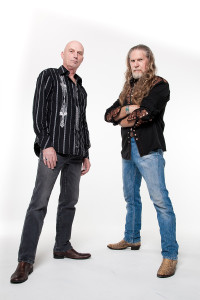 In the late 70s Gary discovered the music he’d always been looking for when he heard the Fabulous Thunderbirds and Stevie Ray Vaughan.
In the late 70s Gary discovered the music he’d always been looking for when he heard the Fabulous Thunderbirds and Stevie Ray Vaughan.
The hard-nosed attitude, deep bass and razor-edge guitar appealed instantly and so he formed the now legendary Red House Rockers, one of the finest bar bands this country has ever seen.
They opened for Jason and the Scorchers, the Thunderbirds, the Edgar winter Blues Band and George Thorogood and against that competition (and their demanding audiences) they triumphed. I saw them at most of these shows and was enormously impressed. I remember thinking that maybe we didn’t need the internationals. I honestly thought the Red House Rockers could be, and should be, huge. They could be incendiary.
But I guess radio let them down, that was the way of it in those days.
In the early 90s the Red House Rockers’ promising career trickled to an end and Gary took himself off to Texas to experience the music first-hand. He came back inspired and pulled the Rockers together briefly before forming the Rippers with like-minded guitarist Tony Abbott.
Tony has been with Gary ever since: “I write the songs and he interprets the way I think,” says Gary.
Tony has the usual schooldays bands but he first started playing seriously in England in the mid 70s. When he returned to New Zealand he formed the rock-blues Gangsters, then shifted to swing jazz and r’n’b with the Charlatans. He later pursued acoustic folk-blues, and with Slim Change moved into Texas styles. His well-known band Medicine Hat pulled from all styles but when he met Gary 10 years ago their similar influences and love of tough Texas blues-rock made it inevitable they would work together.
Their band the Rippers eventually turned into Gary Harvey and the Night Owls. They were unashamedly populist in that they didn’t shy away from playing covers, but look at the ground they covered: from Chuck Berry and the Beatles to Lynyrd Skynyrd, from Clapton to the Doors and Tom Petty. As they use to say, “You’re gonna have a good time”.
Their last CD, and I love the title was called For What It’s Worth. Yes, they cover the old Buffalo Springfield song of that name, but as an album title it also has a kind of dismissive feel to it, as if the band is saying, “Well, this is what we can do, it’s over to you know”.
Gary has always written for the bands he’s played in so on the album alongside blues classics like All Your Love (which reaches way back to the mid 60s when John Mayall and Eric Clapton brought this Otis Rush classic to popular attention) Gary also displays song writing chops, and a sense of humour to Auckland Blues.
A new CD is in the pipeline, which will feature all original material, and will hopefully be due for release later this year.
The inspiration to keep a band working in the current economic climate has become lessened, so these days Gary is concentrating on writing and recording and doing a few acoustic gigs with Tony, and planning a tour when the CD is out.
Gary’s love for playing has never diminished and he’ll just keep on keeping on, and as Sonny Day would say, “Sometimes you win, sometimes you lose… that’s what you get when you play the blues.”
If anyone is entitled to have the blues it’s a musician like Gary who has been around this city for decades playing his music and seeing little return for the effort other than the genuine appreciation of his audiences.
You know what that tells me?
That Gary Harvey is actually in it for the music. He is the real deal. Believe it.
That television guy didn’t know what he missed when he failed to call Gary Harvey.
written by Graham Reid

